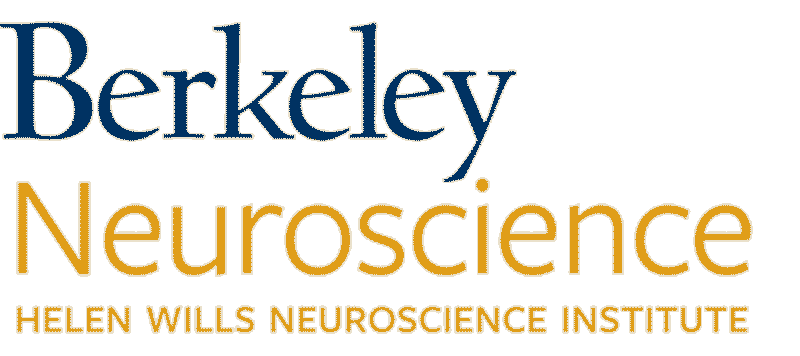by Rachel Henderson
Each fall, neuroscientists from around 12 different departments across the UC Berkeley campus come together at the Berkeley Neuroscience Annual Conference, hosted by the Helen Wills Neuroscience Institute (HWNI). This October, the conference was held online due to the COVID-19 pandemic, but attendees could still share their research, hear from keynote speakers, and discuss issues of importance to the HWNI community.
The lead conference organizer, HWNI faculty member Michael Yartsev, says it was important to continue to hold the conference. “I think we’re all striving for some sense of community,” he says. “This is one of those events that we felt would be really important to try to [keep up], even if it’s in some limited capacity, because it’s such a core thing that we do in the Helen Wills [Neuroscience] Institute.”
Yartsev says many people were instrumental in organizing the conference and contributing to the program, particularly staff members Natalie Terranova and Corinne Lamata, HWNI faculty members Dan Feldman and Michael Silver (director of the Neuroscience PhD Program), and all of the faculty, graduate students, and postdocs who led sessions and gave talks. The full schedule can be found here.

Neuroscience PhD student Kevin Yu (Theunissen lab) giving a talk about his research at the conference.
Yartsev and the other organizers tried to keep the program as similar as possible to the traditional in-person conference. As in past conferences, several faculty members, postdocs, and Neuroscience PhD students gave talks about their research. Third-year PhD students participated in the annual “data slam”, where they gave brief presentations about their work.
The keynote speakers were professor Leslie Vosshall from The Rockefeller University and Nobel laureate and UC Berkeley professor Randy Schekman. As in previous years, graduate students and postdocs had their own sessions where they could talk with the keynote speakers. “It’s very inspiring for many of the [students and postdocs] to see great scientists and have the time where they can talk to them without faculty being present,” Yartsev says.
At this year’s conference, discussion sessions were held to address important issues that concern members of the HWNI community about systemic racism and the impact of the pandemic. Yartsev says, “These sessions are really important since what our conference is about extends beyond science into a feeling of community where we want everyone to feel comfortable and welcome. The reality is that recent past and future events deeply trouble many of us and therefore we wanted to make sure these get discussed openly with the students through these sessions.”
One discussion session was focused on climate, diversity, and inclusion in HWNI, and was led by Neuroscience PhD student Celia Ford, HWNI faculty equity adviser Joni Wallis, and HWNI faculty members Diana Bautista and Ellen Lumpkin. Topics included an update on the steps HWNI is taking to promote diversity, equity, and inclusion (DEI) in the institute; police brutality and policing on campus; and discussions about how to sustain DEI efforts and make labs more inclusive.
Two other discussion sessions centered on the worries of graduate students and postdocs about the impact of COVID-19 on the job market. One session focused on the academic job search for postdocs, and was led by Yartsev and fellow HWNI faculty members Bob Knight, Rich Ivry, Marla Feller, Na Ji, Michael Silver, and Andrea Gomez. The other session was about careers in industry, and was led by HWNI faculty member and co-founder Corey Goodman, who also founded several companies, and was moderated by Neuroscience PhD student Tobias Schmid.

Neuroscience PhD student Malak El-Quessny (Feller lab) giving a talk about her research at the conference.
First-year Neuroscience PhD student Nancy Hernandez Villegas said the conference made her feel more connected to the Berkeley Neuroscience community, and that she particularly enjoyed the keynote speakers and the data slam. Sixth-year Neuroscience PhD student Malak El-Quessny said that giving a full talk for the first time was exciting, but that she missed the interaction with the audience that happens in person.
Yartsev echoes this sentiment. “I feel it was kind of bittersweet,” he says of the conference. “It was great to have some sense of community, and the science was amazing. People presented really very elegantly — from the students, to the faculty, to our keynote speakers. … I think also the specific topics of the discussion [sessions] were pretty wonderful and people really got a lot out of it. At the same time, it was bitter in the sense that we all wanted to be together, and to be able to hang out at the [conference] as we normally do.
“For next year, hopefully some of this will be behind us and we’ll be able to meet [in person] again. I think we’ll appreciate it even more.”
Additional Information
- 2020 Berkeley Neuroscience Conference schedule
- See our program activities page for past conference schedules and other Berkeley Neuroscience activities.



